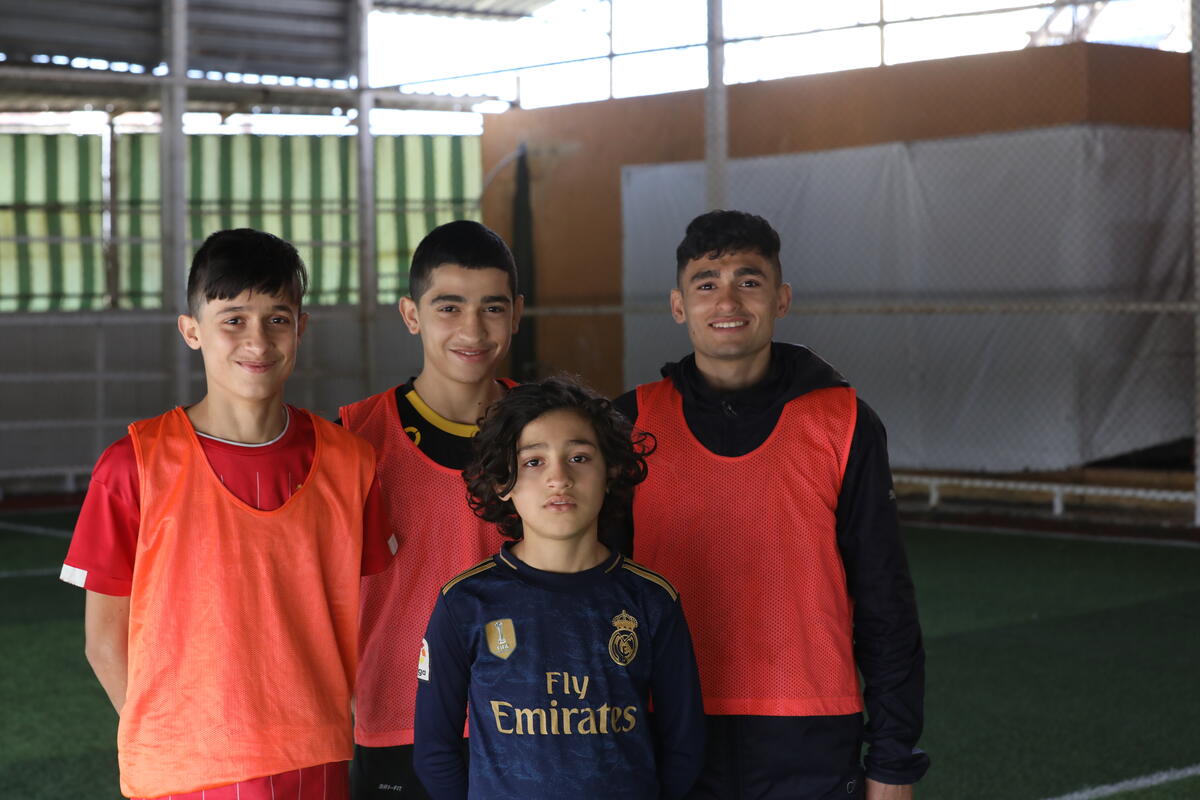This week in the UK: communities rally round to help the vulnerable
This week in the UK: communities rally round to help the vulnerable

People around the UK are mobilising to help the vulnerable during the Covid 19 crisis, from the more than half a million who have signed up to become NHS volunteers, to local groups trying to find shelter for the homeless, replenish food banks and make deliveries to the elderly and those self-isolating.
UNHCR, the UN Refugee Agency, want to highlight the great work people are doing in their communities to help their neighbours, and let people know how to get involved.
Each week we will be highlighting just some of those who are helping the vulnerable -- including refugees and asylum seekers -- organisations that need your help, and refugees and asylum seekers who are helping in their communities.
Many groups are vulnerable during the COVID-19 crisis including the elderly, those with pre-existing medical conditions and those tirelessly working in the health sector.
Refugees and asylum seekers are also at risk for a number of reasons:
- They may not speak English, and may find it difficult to access and understand information about how to get help or medical assistance;
- If they are new to the UK, they may not yet have a support network to rely on to help deliver food or take care of other vital tasks while self-isolating;
- While asylum seekers are awaiting decisions on their claims, they cannot work, and during the current situation may not be able to access organisations that can support them, such as, charities and food banks, which are also overwhelmed; and
- Refugees and asylum seekers mostly survive on very limited budgets, and panic buying in supermarkets means that the cheaper products they can seek are no longer available.
Spotlight: Highlighting vulnerability and delivering essentials
Md Mominul Hamid is a campaigner, and an asylum seeker. Right now, he is using his platform to help people understand why refugees are especially vulnerable, and spending his time delivering food to those who need it.
Included in his message is a simple act people can do today. By not panic buying, you are can help refugees access the things they need.

Making information accessible
Doctors of the World

To help make sure that refugees and asylum seekers are not left behind, Doctors of the World have translated official government advice into 34 languages.
If you are involved in a local group, make sure that you let your community know that this is available.
Community action
People around the UK are coming together to help in their communities. This is just some of the great work being done, and ways that you can get involved.
Mutual Aid

With groups set up across the UK, people are helping the vulnerable in their community. Whether that’s delivering shopping, being a friendly voice at the end of the phone or taking a dog for a walk, a small act can make a big difference.
Find your local group here. Across the country, similar groups have sprung up locally via NextDoor and Covid-19 Mutual Aid on Facebook.
Support community food banks
Food banks are critical for many of society’s most vulnerable, and this includes refugees and asylum seekers. But right now, they are suffering through a lack of donations, and falling numbers of volunteers.
To help your local foodbank, use this tool:
Donate your old tech
As schools around the UK have closed, those without personal computers and access to technology risk getting left behind. Refugee children have often missed out on education after being forced to flee their homes. If you have an old laptop or tablet at home, it could make a difference to a child’s life.
Organisations like RESET can help your devices find a new home:

Regional support
By coming together as a Region of Sanctuary, people in the North-East have developed a Facebook community to help refugees find the help they need.
If you are in North-East England, you can submit information to the group on Facebook
Help us let more people understand how they can get involved
We know there are amazing things going on all over the country, and many organisations and community groups are in need. Help us to raise awareness and let more people know about what you are doing. Get in touch @UNHCRUK or make sure you tag us in your tweets, so we can help more people make a difference where they live.

















